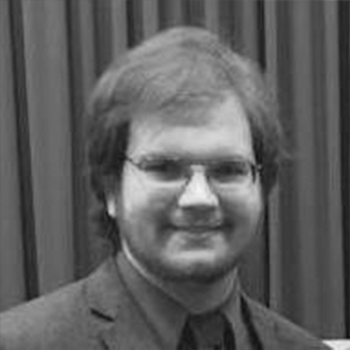Law prof tackles Tea Party and Trump in Islamophobia lecture
A Princeton University lecture in late September focused on “American Islamophobia” and its relationship to law, public policy, and white supremacism.
University of Detroit Mercy law professor Dr. Khaled A. Beydoun gave the talk in promotion of his recent book, American Islamophobia: Understanding the Rise and Roots of Fear.

Beydoun argued that Islamophobia is not “a siloed or isolated form of animus,” but is rather “tied to things like white supremacy” which “facilitates the growth of Islamophobia.”
Islamophobia must also be tied to “patriarchy and to sexism and misogyny,” he said. “It’s important to tie Islamophobia to racism, and view it not as a standalone system,” but as one that is “fed and nurtured by these other forms of bigotry and animus.”
[RELATED: Princeton Office of Religious Life helps raise money for PP]
The law professor defined Islamophobia as “the presumption that Islam is inherently violent, alien, and inassimilable, driven by the belief that expressions of Muslim identity are correlative with a propensity for terrorism.”
This definition, the professor explained, was motivated by dissatisfaction with media, academic, and activist presentations of Islamophobia as “aberrational or deviant activity” that is propagated only by “these bad guys sitting on the margins of society,” excluding the potential for politicians, “whether they be Republicans or Democrats, [to be] Islamophobes as well.”
Beydoun also asserted that Islamophobia takes three forms: “private,” which is perpetuated by individuals, “structural,” which emanates from law, public policy, and political rhetoric, and “dialectical,” whereby the state perpetually “shapes and reshapes” Islamophobia and “informs and emboldens private attitudes and behaviors.”
[RELATED: Michigan prof.: Islamophobia, right-wing Jews inspired Charleston shooting]
Making reference to Edward Said’s book of the same name, Beydoun placed blame for Islamophobia at the feet of orientalism. He described orientalism as a “master discourse” that constructs a positive portrait of the West “in the mirror opposite terms of the East,” which is accordingly presented as backward.
“Islamophobia in its modern form today is an animation—it’s the spawn—of Orientalism,” he said.
Beydoun challenged the notion that President Trump is an unprecedented avatar of American Islamophobia. He pointed to the creation of the Department of Homeland Security and the USA PATRIOT Act under the George W. Bush administration, as well as the National Security Entry-Exit Registration System (NSEERS) and Countering Violent Extremism programs under the Obama administration, as examples of Islamophobic policies preceding Trump.
The professor argued that the Trump travel ban was not possible without the existence of the Patriot Act.
Islamophobia is not a uniquely right-wing animus, according to Beydoun.
“We know that both parties, and every gradient in between, is [sic] actually participating in the broader project of Islamophobia.”
[RELATED: Princeton course will teach students to ‘read queerly’]
He criticized President Obama for indulging a “good Muslim vs. bad Muslim binary,” wherein “good Muslims partake in this project of finding out who the bad guys in the mosques are” and “prioritize their patriotism above their faith.”
Obama’s rhetoric, said Beydoun, only ever framed Muslim identity “in terms that were terror-hating, peace-loving, and always tied and always tethered to national security and the War on Terror.”
Later in his talk, he noted that he was motivated to write American Islamophobia in part because “there is this tendency on the right, obviously, to … vilify Muslims and construct them in very flat terms” as subversives and terrorists, but also on the left, “in terms of...what victimhood looks like.”
But Beydoun said that he sees Muslims’ entry into American politics and academia, as well as the growing political shift of young Muslims from the right to the left, as “reasons for optimism” that point to an ongoing “Muslim American renaissance.”
Beydoun addressed the motivations underlying Islamophobia during the question-and-answer session following his main talk.
“It seems to me that this new wave of Islamophobia that’s been emboldened by Trump—and before Trump, the Tea Party—it is driven by demographic concerns,” namely the “fear of a brown country.”
“The same white supremist [sic] sentiment” that believes Latinos are taking American jobs, that South Asians are filling seats in American universities, and that Muslims are “supplanting American values with Sharia law,” Beydoun claimed, comprise a narrative of “reawakened white supremacy that has been peddled very effectively by Trump.”
[RELATED: Princeton editor compares Trump policies to Holocaust]
“‘Make America Great Again,’ in my opinion, wasn’t a dog whistle,” he continued. “It was an explicit appeal to a restoration of American white supremacy.”
He blamed the Tea Party for “sow[ing] the seeds” of Trump’s successful 2016 presidential campaign.
The professor added that miseducation of Islam complemented aversions to the religion stemming from white supremacy.
Beydoun, whose personal website describes him as a “leading scholar on Islamophobia” and a “critical race theorist,” is a member of the U.S. Commission on Civil Rights’ Michigan State Advisory Committee.
His speech was part of the Islam in Conversation series sponsored by the Muslim Life Program under Princeton’s Office of Religious Life and was held at the university’s Carl A. Fields Center for Equality and Cultural Understanding. It was cosponsored by the Mamdouha S. Bobst Center for Peace and Justice, the Program in Law and Public Affairs, and the Program in American Studies.
Watch Beydoun’s lecture in its entirety below:
Editor’s note: A previous version of this article stated that Beydoun is a member of the U.S. Commission on Civil Rights. He is a member of the U.S. Commission on Civil Rights’ Michigan State Advisory Committee.

